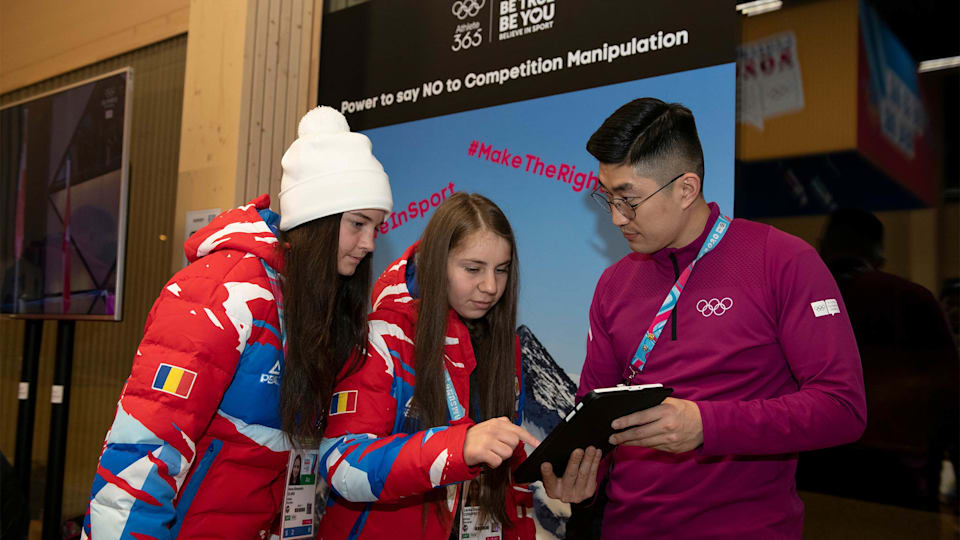Making the right decision – how YOG athletes are being made aware of the risks of competition manipulation
In between competitions, athletes at the Youth Olympic Games (YOG) in Lausanne are also actively taking part in activities aimed at providing them with useful information on issues that they are or will be facing during their careers. One series of activities being run as part of the “Believe in Sport” campaign has been specifically designed to raise awareness about the threat of competition manipulation among athletes, their entourages and officials.

Through an online activation, as well as fun and interactive activities at dedicated booths in the Youth Olympic Villages in Lausanne and St Moritz, athletes learn why sport becomes meaningless and loses its credibility if the course or result of a competition is fixed in advance.
Athlete ambassadors
Supporting the campaign are a number of retired athletes, who are acting as ambassadors and whose contributions are strongly valued by the YOG athletes. One of them is 25 year-old Slovenian Alpine skier Jakob Spik, who recently retired from his sport due to injury.
“I have been working at the Believe in Sport booth, attracting athletes to our booth and educating them about our campaign. Most of the athletes know at least something about the topic, they know the problem. But also those who have never heard about it seem to understand it quite well after our explanations,” said Jakob. He added: “It has been a great experience and I hope to stay involved in the future.”
Jakob has been joined by fellow ambassadors Elisa Perini from Switzerland, a former elite biathlete, and Zoé Cheli, also from Switzerland, who recently retired from ski cross in order to concentrate on her studies in environmental sciences. At the Believe in Sport booths, the three of them help to moderate different sessions and activities, all of which aim to convey the nature of competition manipulation and explain how athletes can protect themselves if they are approached.
Learning through fun activities
A dedicated app encourages users to create an athlete avatar from a selfie and then choose from four short scenarios which feature challenging situations and require quick reactions. In this way, the young athletes learn about the different ways they might get caught in the web of competition manipulation. At another game, called “Share/Don’t Share”, athletes take a look at social media posts and decide if they should share them or not. The aim is to raise awareness about the sensitivity of information when it comes to competition manipulation.
At the booth, the athletes have also had the opportunity to interact with INTERPOL officers and learn about “behind-the-scenes” aspects of competition manipulation and related police investigations.
According to the first results of a survey on these activities, one third of the athletes had never heard about competition manipulation before coming to the booth. The young athletes found it particularly “interesting to learn about specific dos and don’ts” regarding competition manipulation and enjoyed “learning something new”.
Focus Days with International Federations
Keen to learn more? Check out https://www.olympic.org/athlete365/believeinsport/ and join the conversation by using the hashtags #BelieveInSport #MakeTheRightDecision.